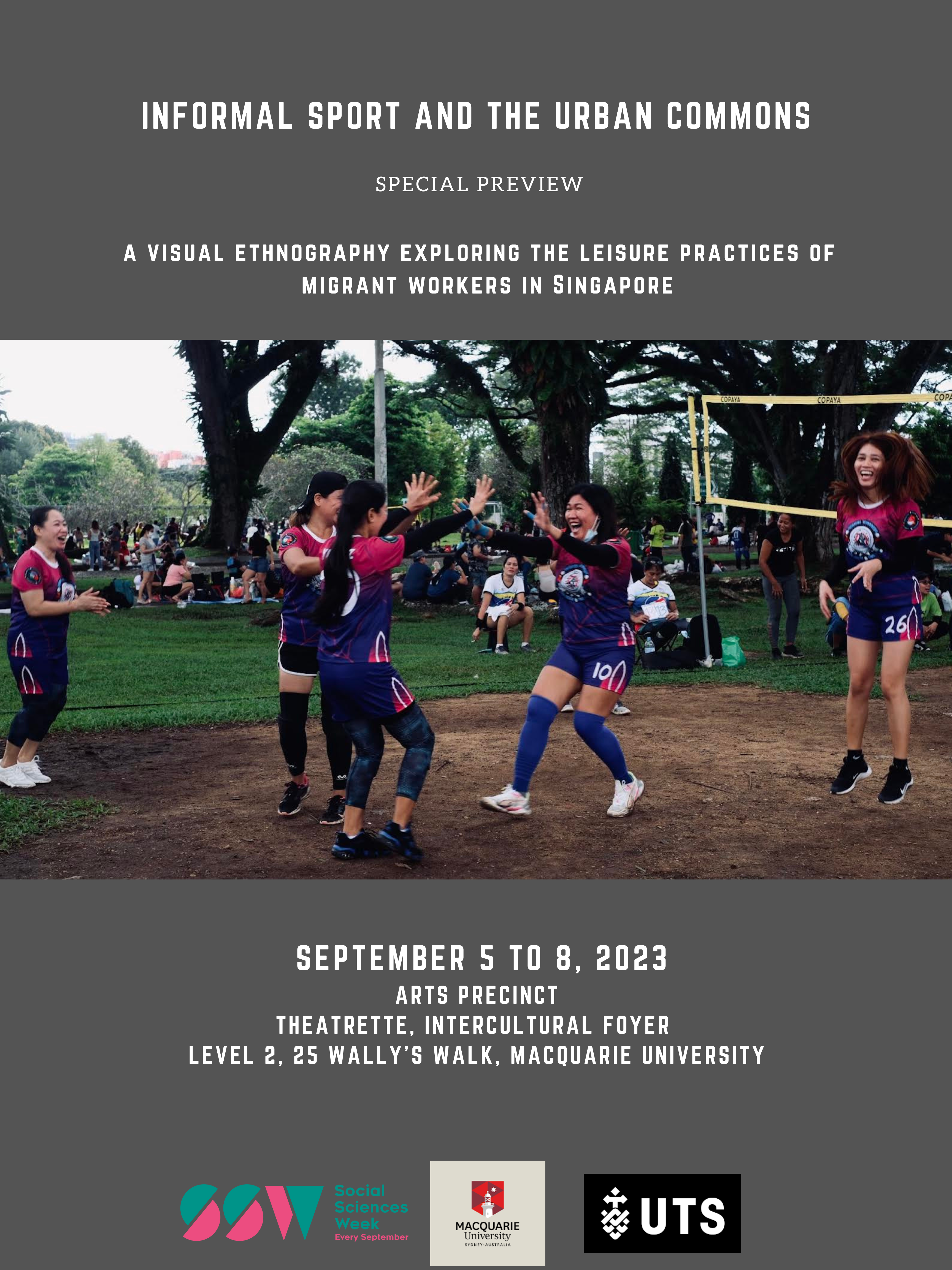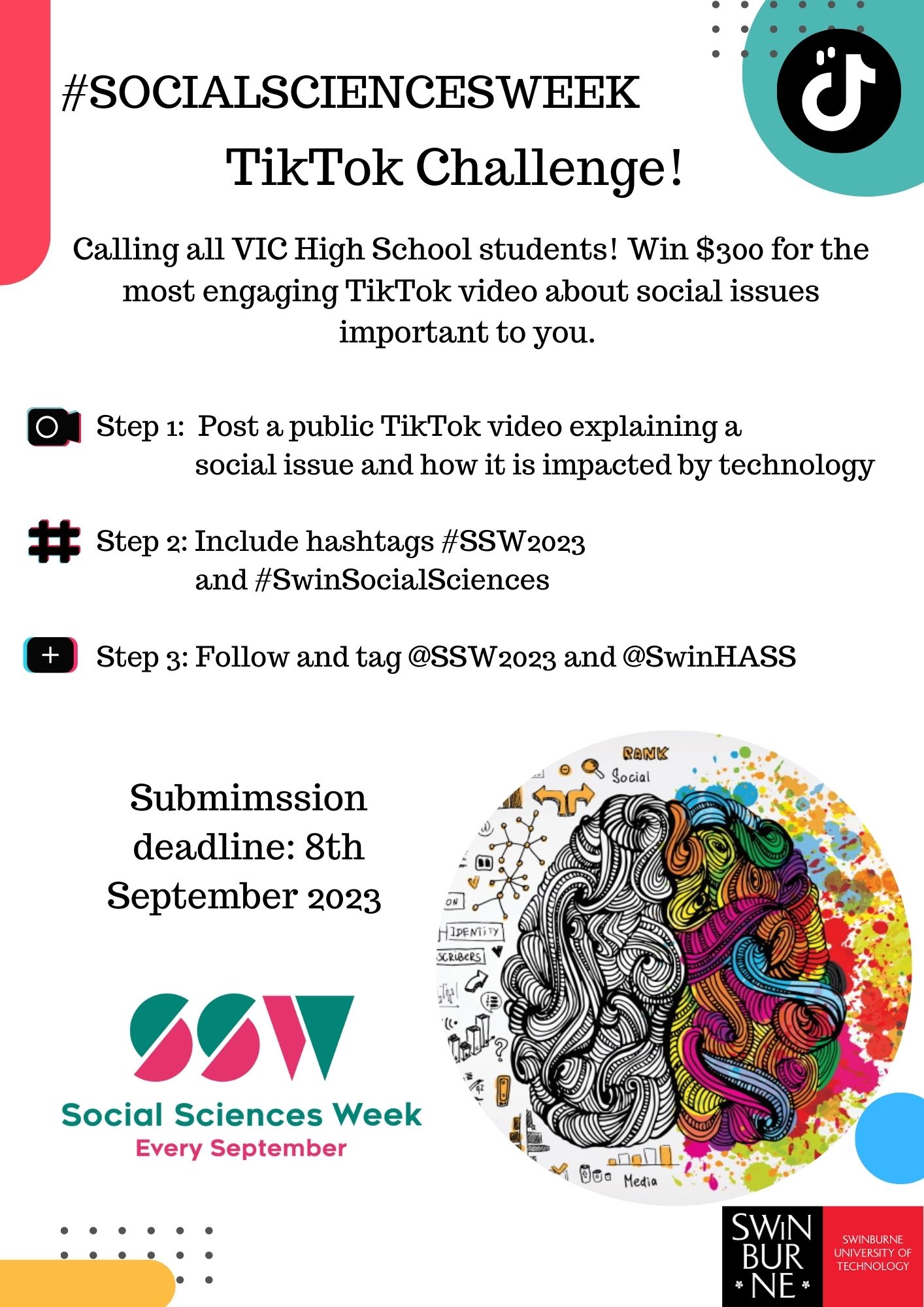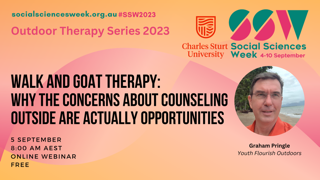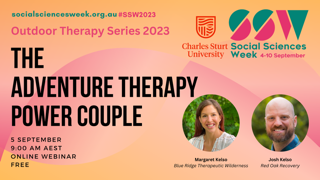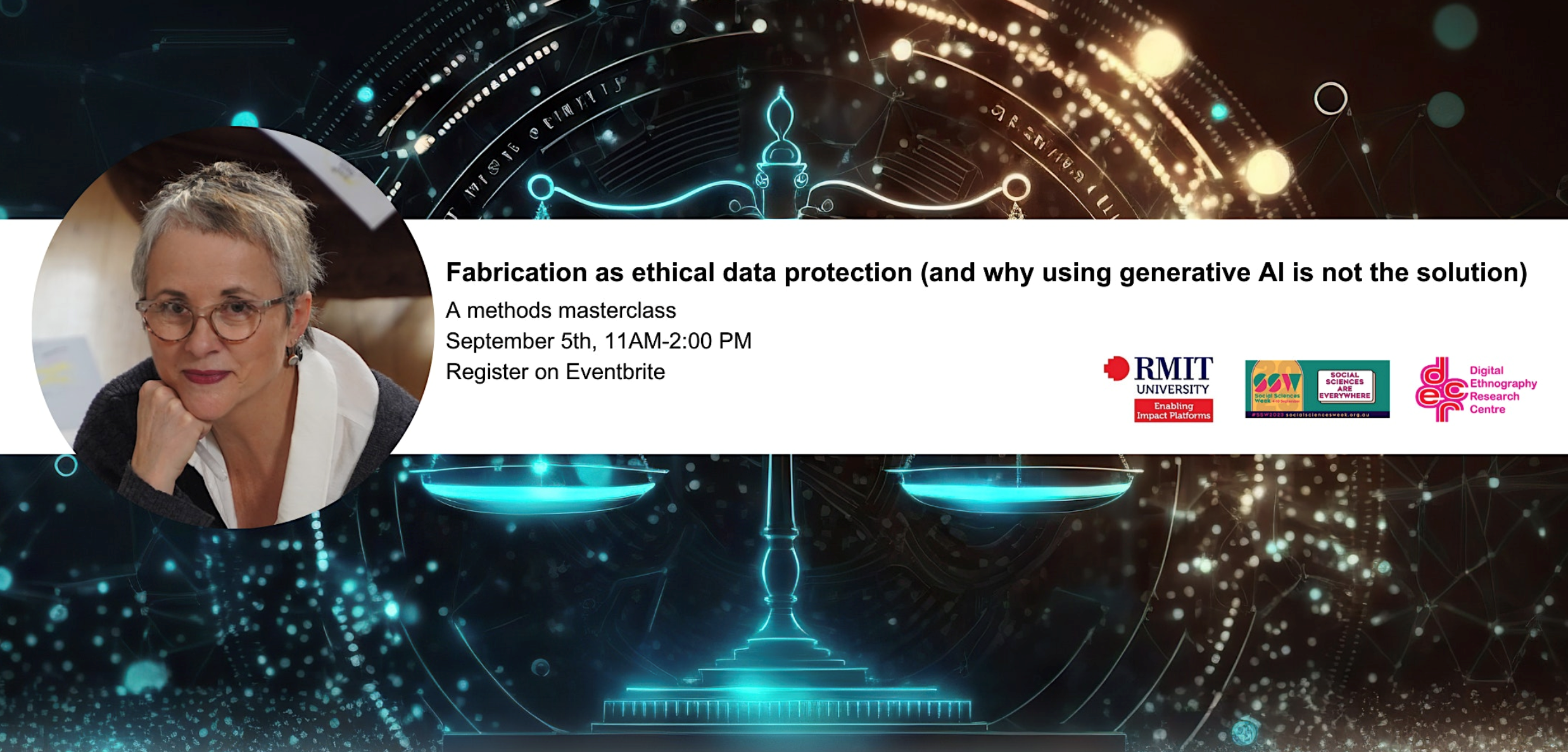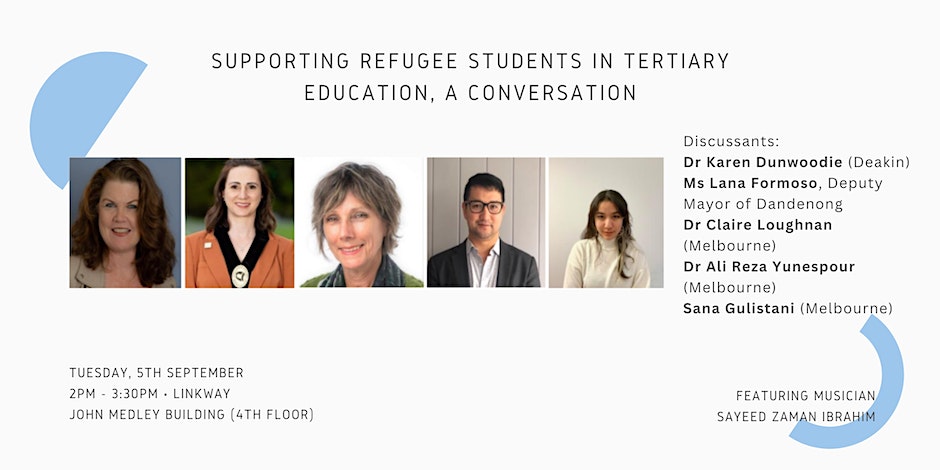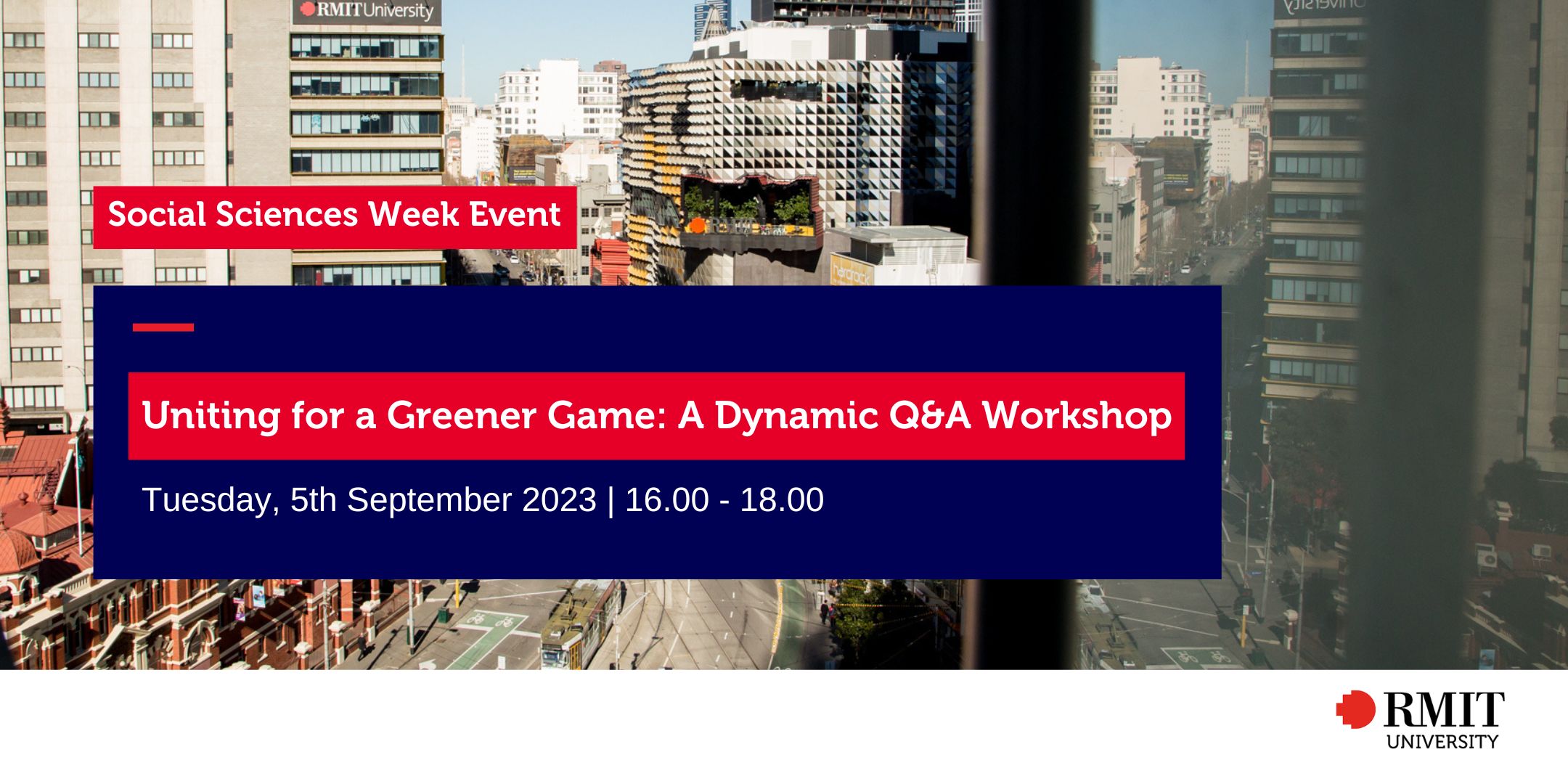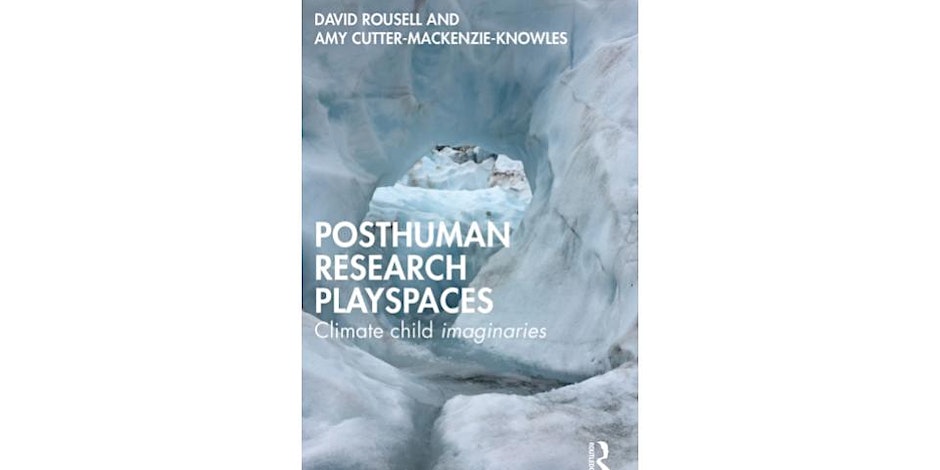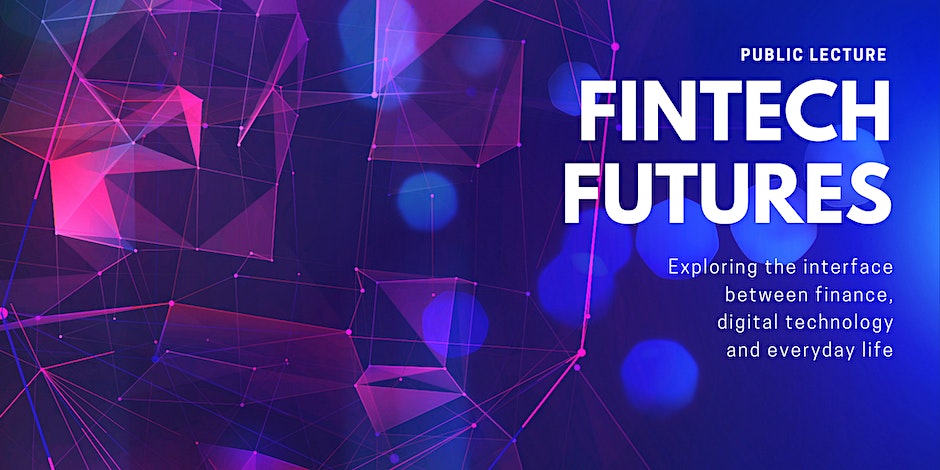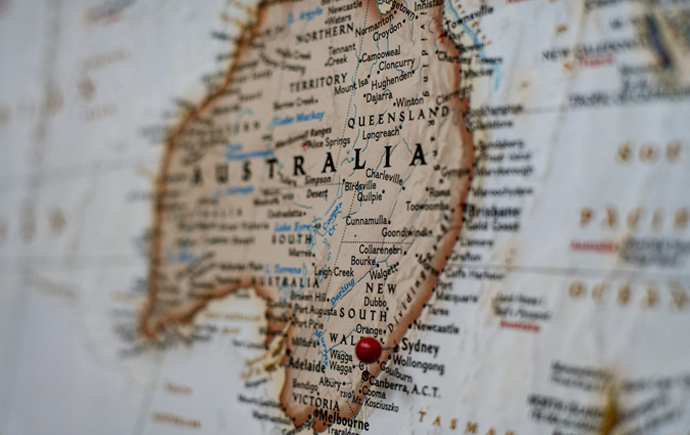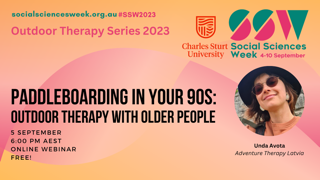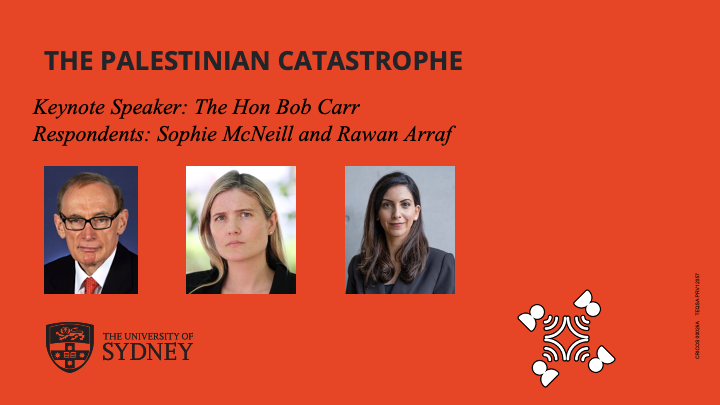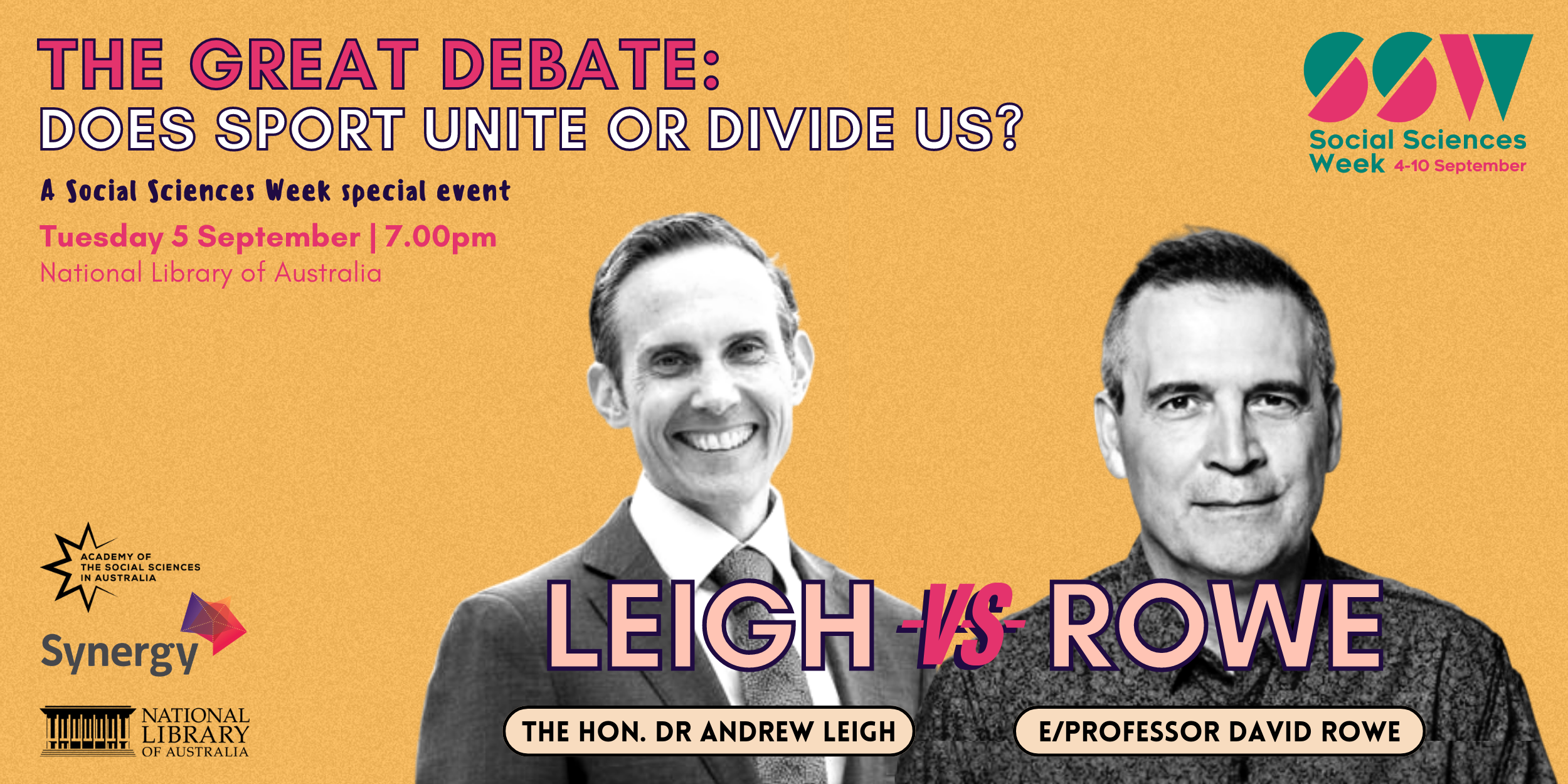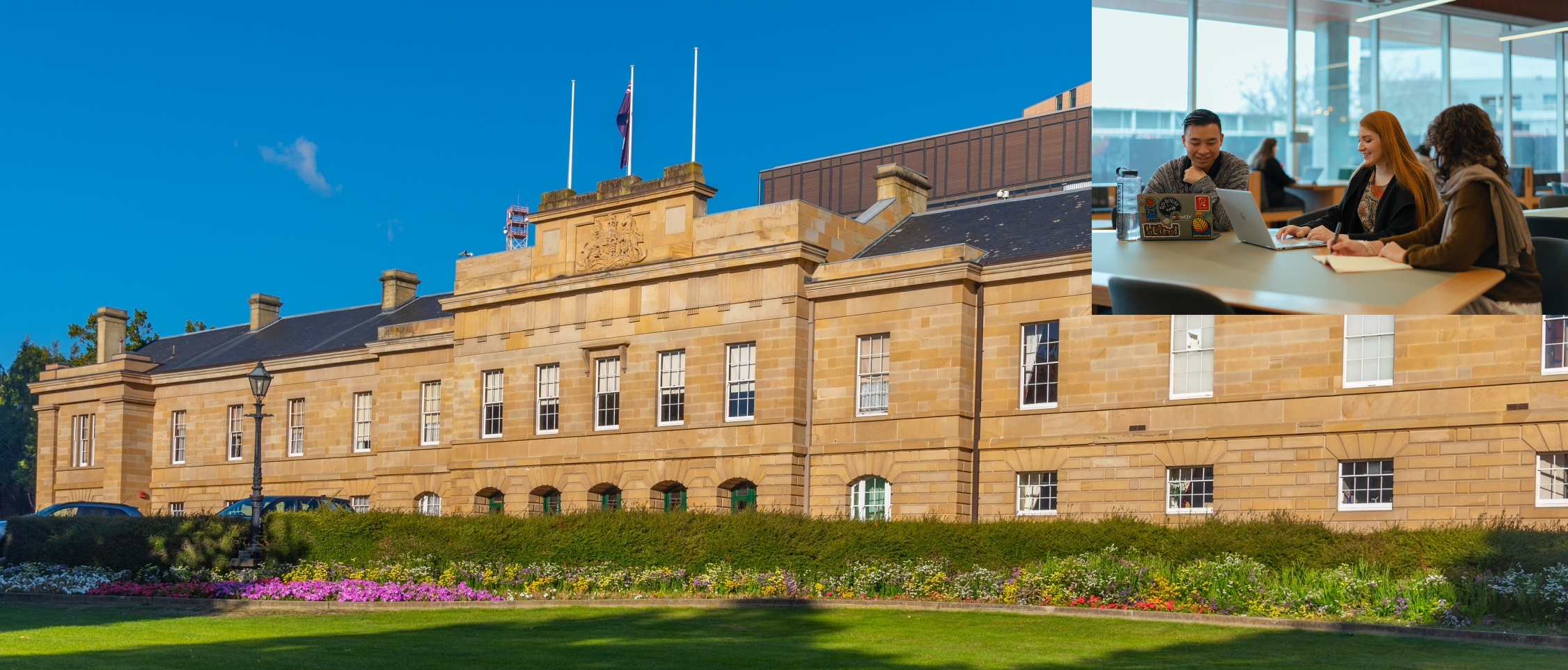Informal Sport and the Urban Commons
Macquarie University 25 Wally's Walk, North RydeVisit the Arts Precinct at Macquarie University during this year's 2023 Social Sciences Week for a special preview of research findings from a visual ethnography project, Informal Sport and the Urban Commons, exploring the role that informal sport plays in facilitating social inclusion in the global city. Between September 5 to 8, the Theatrette at the Intercultural Foyer located inside the Arts Precinct will come to life with video interviews and documentary photography taken with temporary migrant workers in Singapore who share stories about the significance of informal sport in their everyday lives. Informal Sport and the Urban Commons is a visual ethnography that aims to provoke reflection on the intersection between leisure practices, migrant place-making, and the right to the city. Event details: Cost: FREE Date: September 5 to 8 Location: Theatrette, Intercultural Foyer Level 2, 25 Wally’s Walk, Macquarie University Drop in to meet and chat with the project team on September 5, 12pm to 3pm Project team Professor Amanda Wise (Macquarie University) A/Professor Selvaraj Velayutham (Macquarie University) Dr Kristine Aquino (University of Technology Sydney) James Loganathan (University of Technology Sydney) Project funded by Australian Research Council (Discovery Project) Centre for Social Justice and Inclusion, University of Technology […]

